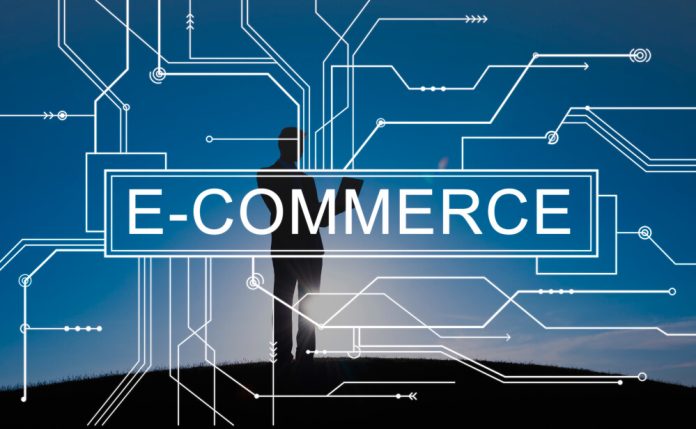The digital transformation of B2B commerce has accelerated over the past decade, bringing new opportunities and challenges for companies looking to thrive in a highly competitive, online-driven marketplace. As B2B E-Commerce continues to expand, building trust with customers has become paramount.
Trust is the foundation of any successful B2B relationship, and in the age of e-commerce, where buyers are often faceless and transactions are virtual, gaining and maintaining that trust is even more crucial.
In 2025, with rapidly evolving technologies, evolving customer expectations, and increasing concerns about security and privacy, the question is not only how businesses can engage customers, but also how they can ensure their customers feel secure, valued, and confident in their online interactions.
This blog will explore the best practices for building trust in B2B E-Commerce, with a focus on the changes expected in 2025, offering insights into the strategies businesses must adopt to stay ahead.
Why Trust Is Crucial for B2B E-Commerce?
In the world of B2B E-Commerce, trust is the bedrock upon which all business transactions are built. Without it, even the most innovative product or service will struggle to find a customer base. Unlike B2C transactions, B2B deals often involve high-value purchases, long-term commitments, and complex contracts. A single misstep can lead to a significant loss of business or damage to a company’s reputation.
Trust in B2B E-Commerce impacts everything from customer retention rates to conversion rates, and it plays a crucial role in driving customer loyalty. Moreover, businesses today are more likely to share sensitive information, from payment details to business data, making security, transparency, and reliability non-negotiable.
As we look toward 2025, B2B businesses must understand that traditional approaches to trust-building may no longer be enough. Technological advancements, new customer expectations, and shifting industry dynamics demand fresh strategies that combine customer experience, transparency, and robust security measures.
Best Practices for Building Trust in B2B E-Commerce in 2025
1# Ensuring a Seamless and Intuitive User Experience
One of the first steps toward building trust in B2B E-Commerce is providing a seamless and intuitive user experience (UX). Today’s B2B buyers are more tech-savvy than ever before and expect websites and online platforms to be user-friendly, fast, and easy to navigate. The experience should be designed to facilitate efficient transactions, minimize friction, and provide clear guidance at every stage.
- Responsive Design: With mobile commerce becoming increasingly important, it’s critical to ensure that B2B e-commerce platforms are optimized for mobile devices.
- Easy Navigation: A simple, clean design with intuitive navigation makes it easier for buyers to find the information or products they need.
- Clear Call-to-Actions: Using clear and compelling call-to-action buttons improves conversion rates and guides customers through the purchasing process.
A well-designed and easy-to-use website can significantly enhance trust, as customers feel more confident navigating an intuitive environment.
2# Prioritizing Data Security and Privacy
Data security is one of the most critical factors in building trust in B2B E-Commerce. As companies rely on digital transactions and the exchange of sensitive data, any vulnerability in security can lead to disastrous outcomes. In 2025, buyers will be even more concerned about how their data is handled and protected.
- SSL Encryption: Ensure that all data shared on your website is encrypted with Secure Socket Layer (SSL) certificates. This encryption provides a secure channel between the user’s browser and the server, instilling confidence in customers.
- Compliance with Data Regulations: Adhere to global data protection laws, such as the GDPR (General Data Protection Regulation) and CCPA (California Consumer Privacy Act). Ensure your privacy policies are transparent and updated regularly.
- Two-Factor Authentication (2FA): Offering 2FA can significantly improve security during the login and transaction process, providing an extra layer of protection for your customers.
Building trust means that businesses must prioritize cybersecurity and demonstrate a strong commitment to protecting sensitive information.
3# Transparency in Pricing and Terms
One of the most effective ways to foster trust in B2B E-Commerce is to be transparent about pricing and terms. B2B buyers often deal with complex contracts, and any hidden fees, unexpected charges, or unclear terms can quickly erode trust.
- Clear Pricing: Make sure pricing is upfront and clearly displayed on product pages, including any additional costs like shipping or installation fees.
- Transparent Payment Terms: Outline your payment terms and conditions, including payment methods, due dates, and any late fees. Having these terms readily accessible ensures that buyers know what to expect and reduces the risk of misunderstandings.
- No Hidden Fees: Always disclose any additional fees or charges associated with the purchase to avoid surprises. Buyers appreciate complete transparency in the purchasing process.
This level of openness encourages a positive relationship with customers and reduces any concerns they may have regarding hidden costs.
4# Building Trust with Reviews, Testimonials, and Case Studies
In 2025, the power of social proof in the form of customer reviews, testimonials, and case studies will continue to play a significant role in building trust in B2B E-Commerce. Potential buyers are increasingly relying on the experiences of others to gauge the credibility and reliability of a business.
- Customer Reviews and Ratings: Allow your customers to leave reviews and ratings on your products and services. This offers new customers a firsthand perspective on the quality and effectiveness of your offerings.
- Case Studies: Publish in-depth case studies that highlight how your product or service has helped other businesses solve specific problems. Case studies provide concrete evidence of your product’s value and build credibility.
- Client Testimonials: Include testimonials from reputable clients that vouch for your business’s reliability and quality. This can go a long way in establishing trust with new customers.
Leveraging social proof will help you build credibility and demonstrate that your business is reliable, customer-centric, and experienced.
5# Providing Exceptional Customer Support
In B2B E-Commerce, exceptional customer support is non-negotiable. Businesses that offer timely and effective customer service are more likely to gain the trust and loyalty of their clients. In 2025, it will be essential to provide multi-channel support options to meet the needs of modern buyers.
- Live Chat: Implement a live chat feature on your website to offer real-time assistance and answer questions instantly.
- Omnichannel Support: Offer support across various channels such as phone, email, social media, and messaging apps, ensuring your customers can reach you in a way that suits them.
- 24/7 Availability: Providing round-the-clock support, especially in different time zones, can help address the needs of global customers and build a stronger relationship.
Prompt, professional, and helpful support not only enhances customer experience but also instills a sense of reliability and dependability in your brand.
6# Embracing Advanced Technologies for a Personalized Experience
Personalization is a key factor in building trust, especially as B2B customers expect tailored experiences. Using AI and machine learning to analyze customer data and behavior, businesses can create highly personalized experiences that feel relevant and timely.
- Personalized Recommendations: Use AI to suggest products or services based on the customer’s previous purchases, browsing history, or preferences.
- Targeted Content: Create personalized content and offers that address the specific needs and pain points of each business.
- Dynamic Pricing: Offer flexible pricing models based on the buyer’s behavior, contract terms, and purchasing history to create a more customized experience.
By leveraging data-driven insights, businesses can enhance trust by providing a customer experience that feels personal, relevant, and valuable.
7# Leveraging AI and Automation for Efficiency
In 2025, AI and automation technologies will play an even greater role in optimizing B2B E-Commerce operations. These technologies can not only improve operational efficiency but also enhance customer experience, ultimately fostering trust.
- Automated Order Management: Use AI-powered systems to streamline order processing, tracking, and inventory management, ensuring a seamless experience for customers.
- Chatbots and Virtual Assistants: AI-driven chatbots can offer real-time assistance, answer common questions, and guide customers through the purchasing process, creating a more responsive and efficient environment.
Automation can reduce human error, speed up processes, and ensure consistency—all factors that contribute to building trust.
Conclusion
Building trust in B2B E-Commerce is no longer optional—it’s a critical factor for business success in 2025 and beyond. By prioritizing security, transparency, personalization, customer support, and leveraging emerging technologies, businesses can create an environment where customers feel valued and confident in their purchasing decisions. As the digital landscape continues to evolve, those who embrace these best practices will be well-positioned to foster long-term relationships, drive customer loyalty, and thrive in the competitive world of B2B E-Commerce.
I hope you find the above content helpful. For more such informative content please visit Techedgedemand.









